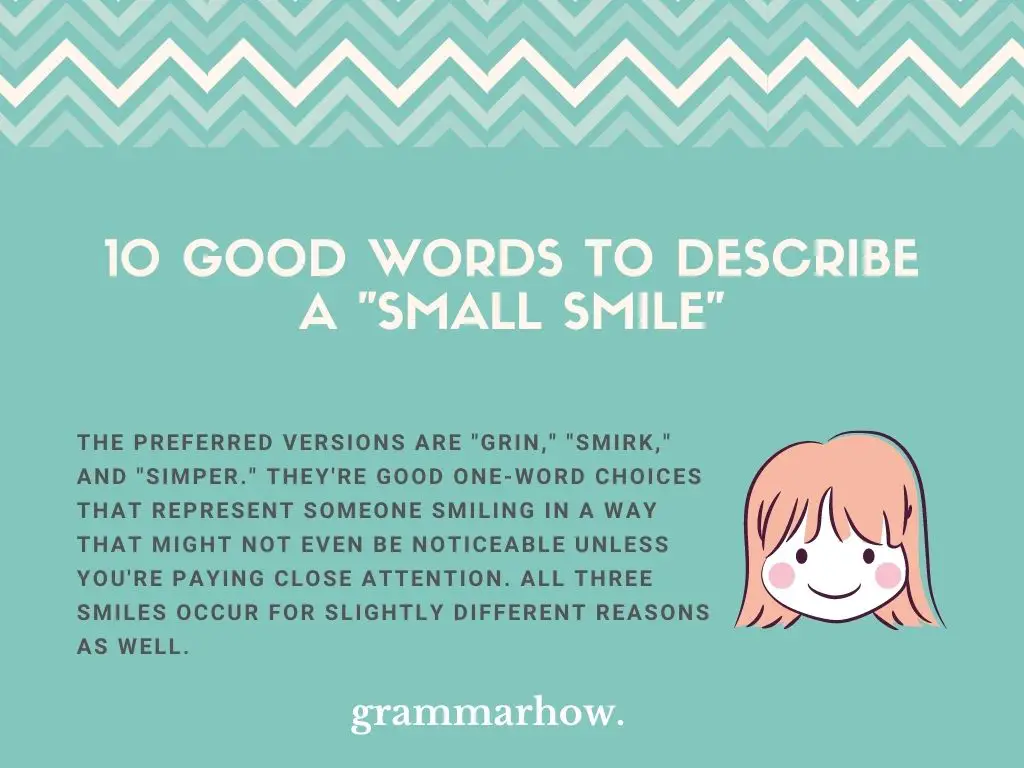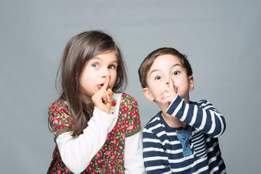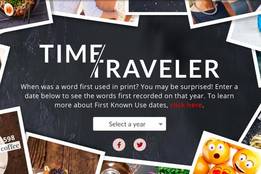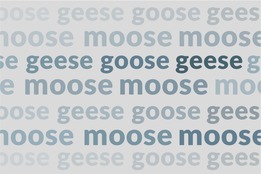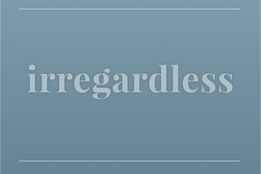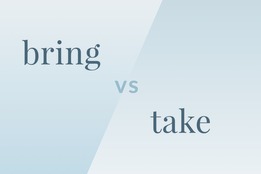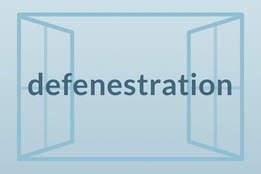If we asked you to come up with some great synonyms for the word “smile,” you’d probably have a few great ones ready to go. What happens when we only want to refer to a small smile, though? This article will explore all the best options.
The preferred versions are “grin,” “smirk,” and “simper.” They’re good one-word choices that represent someone smiling in a way that might not even be noticeable unless you’re paying close attention. All three smiles occur for slightly different reasons as well.
Grin
Technically, “grin” doesn’t refer to a small smile. It refers to a beaming smile. However, it’s come to mean small smile in recent years, especially when we use it with words like “subtle” or “cheeky.” The idea is that people will grin in a sly way to hide their amusement.
Even the official dictionary definition regards “grin” as a wide smile.
The definition of “grin,” according to The Cambridge Dictionary, is “a wide smile.”
However, if used in the following ways, we can also represent it as a much smaller smile.
- He let out the smallest grin, which made it clear to me that he was enjoying what was transpiring at that moment.
- You’ve got the dirtiest grin on your face. I wish you would get rid of it before anybody else notices it’s there.
- Stop with the subtle grinning. I know you’re up to no good, and I’ll be sure to find out what I need to do to stop you!
Smirk
A “smirk” is a small smile. It works really well in most cases, but a lot of people use it as a disapproving word. Usually, a smirk relates to somebody being smug or showing satisfaction because someone else has done something wrong.
Smirking only works in negative situations. It’s not the best word if you want to remain positive about someone’s small smile (which is why we provided “grin” as an option).
The definition of “smirk,” according to The Cambridge Dictionary, is “a smile that expresses satisfaction or pleasure about having done something or knowing something that is not known by someone else.”
- She smirks a lot when she knows she’s winning. I can’t stand it, and it only leads to me getting even angrier than before.
- I hate it when you smirk! Would you please stop doing that! I feel like you’re mocking me when you make that face.
- I don’t think he meant to let out that smirk. His true character has come through now, and I’m sure we’ll be able to catch him out.
Simper
“Simper” can go both ways. It can be both good (like “grin”) or bad (like “smirk”). A good simpler is usually a small smile that you do to show innocence or silliness. A bad simper is done to be smug or annoying in some way that aggravates the person that sees you.
The definition of “simper,” according to The Cambridge Dictionary, is “to smile in a silly or annoying way.”
- Get that simpering smile off your face right now. I know it was you that did it; I just need to find a way to prove it.
- I’m not simpering! You must have me mistaken for somebody else. I would never smile at something as awful as that.
- I didn’t mean to simper! Now they think that I was the one that did it. I don’t even know how to get out of this!
Sly Smile
“Sly smile” is good because “sly” relates to keeping secrets. In this case, someone is trying to keep their smile a secret because they don’t want anybody to see it.
They might do this because they are trying to hide their true emotions from someone. It might also be effective to smile slyly when you want to show that you know something that someone else might not.
The definition of “sly,” according to The Cambridge Dictionary, is “seeming to know secrets.”
- Your sly smile tells me everything I need to know. I knew I shouldn’t be trusting you with any of these secrets.
- She’s got a sly smile on her face looking at the two of us. Do you think she knows more about it than she’s letting on?
- I’m not sure I appreciate that sly smile of yours! You’ll need to behave yourself if you’re going to get through the rest of this event.
Cautious Smile
A “cautious smile” is what happens when someone is unsure whether they should be smiling. If they think the timing is inappropriate, they might remain “cautious” with their smile so they don’t get in trouble.
The definition of “cautious,” according to The Cambridge Dictionary, is “very careful about what you do or say and unwilling to take risks because you want to avoid possible problems.”
- I appreciate that cautious smile. You know you shouldn’t be laughing or finding this funny, but you just can’t help showing it.
- I don’t have a cautious smile. I’m very straight-faced right now, and I’d appreciate it if you’d stop looking into it too much.
- I’m not going to call him out for a cautious smile like that. It happens to the best of us, and I don’t think it taught us anything.
Stifled Grin
“Stifled grin” is another good way we can describe someone’s grin. We use “stifled” to show that someone is trying to prevent their grin or smile from taking place.
Since they’re fighting to stop the grin from appearing, it materializes as a small smile on their face. It’s barely noticeable if you’re not paying attention.
The definition of “stifled,” according to The Cambridge Dictionary, is “to prevent something from happening, being expressed, or continuing.”
- That’s a stifled grin on his face if I ever saw one! I knew he was up to no good, and now I have a way to prove it!
- I’m not sure I like the stifled grin forming on her face. I wish there was something I could say or do that would stop her.
- Is that a stifled grin I spot on your face? I knew you were in on this too! I wish you had told me sooner!
Weak Smile
“Weak smile” works when you want to show that someone doubts themselves. “Weak” refers to their character, and they are usually too unsure of themselves to feel like they can smile widely, even when they’re having a lot of fun.
The definition of “weak,” according to The Cambridge Dictionary, is “below standard; not good enough.”
- That’s a weak smile you’ve got there. Do you just not believe in yourself or something?
- I think she has a very weak smile. I think it shows you all you need to know about her character, and it’s nothing good.
- He managed to let out the weakest smile I’ve ever seen. I don’t even know if I’m allowed to call it a smile, to be honest.
Momentary Smile
“Momentary smile” means that a smile will come and go before most people notice it. These types of smiles are so small that most people miss them.
If you manage to catch someone in a momentary smile, it could tell you that they’re in on some kind of joke. It might also show you that they’re respectful enough to try to hide a smile when they know it’s an inappropriate time.
The definition of “momentary,” according to The Cambridge Dictionary, is “lasting for a very short time.”
- Okay, what was up with that momentary smile on your lips? Do you know something about this that I’m missing?
- I’m not sure I let out a momentary smile. Like, I would have felt it if my lips had moved in any direction.
- That momentary smile on her face told me that she was in on this secret. I’ll have to confront her about it later.
Barely Noticeable Smile
“Barely noticeable smile” means that we didn’t have much time to notice the smile on someone’s face.
This implies that it was so small that you would have missed it on most occasions. It takes a special set of focused eyes to spot someone pulling one of these off.
- It was a barely noticeable smile, but I saw it. I knew there was some kind of conspiracy going on right under my nose.
- I had a barely noticeable smile, but my teacher had eyes like a hawk. Now I’m in detention for no good reason.
- His barely noticeable smile gave the game away quite quickly. If only the people around him hadn’t listened.
Moment Of Weakness
“Moment of weakness” doesn’t mention “smile” at all. Instead, we use it to show that someone let their guard down for a brief second, which could result in them revealing true emotions of joy or happiness (which results in a small smile).
- In my moment of weakness, I was caught off-guard. I couldn’t believe how many people thought I was in on the joke.
- I noticed a moment of weakness across her face. It was all I needed to see.
- She revealed her true nature in that moment of weakness. I knew she had the capacity for fun!
You may also like: 11 Best Words For A “Fake Smile” (Synonyms)
Martin holds a Master’s degree in Finance and International Business. He has six years of experience in professional communication with clients, executives, and colleagues. Furthermore, he has teaching experience from Aarhus University. Martin has been featured as an expert in communication and teaching on Forbes and Shopify. Read more about Martin here.
What is another word for Smile?
-
grin
put on a happy expression, quiet laugh
-
beam
grin, put on a happy expression
-
smirk
body, put on a happy expression
-
laugh
put on a happy expression, quiet laugh
-
simper
facial cast, activity
-
sneer
grin, facial cast
-
leer
activity
-
grinning
-
smiling
-
snigger
laugh quietly
-
chortle
laugh quietly, quiet laugh
-
twinkle
grin
-
expression
facial cast
-
chuckle
quiet laugh, laugh quietly
-
grimace
facial cast
-
snicker
-
be gracious
put on a happy expression
-
look amused
-
giggle
quiet laugh, laugh quietly
-
titter
laugh quietly
-
taunt
-
jeer
-
scoff
-
deride
-
insult
-
gibe
-
disdain
-
ridicule
-
look
-
visage
Use filters to view other words, we have 256 synonyms for smile.
Filters
Filter synonyms by Letter
A B C D E F G H I J K L M N O P Q R S T U V W
Filter by Part of speech
noun
verb
phrase
phrasal verb
Suggest
If you know synonyms for Smile, then you can share it or put your rating in listed similar words.
Suggest synonym
Menu
Smile Thesaurus
Definitions of Smile
Smile Antonyms
Nearby Words
smiling, smiley, smilingly, smiled
External Links
Other usefull sources with synonyms of this word:
Synonym.tech
Merriam-webster.com
Thesaurus.com
Collinsdictionary.com
Wiktionary.org
Photo search results for Smile

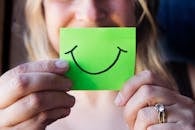




Image search results for Smile






Cite this Source
- APA
- MLA
- CMS
Synonyms for Smile. (2016). Retrieved 2023, April 13, from https://thesaurus.plus/synonyms/smile
Synonyms for Smile. N.p., 2016. Web. 13 Apr. 2023. <https://thesaurus.plus/synonyms/smile>.
Synonyms for Smile. 2016. Accessed April 13, 2023. https://thesaurus.plus/synonyms/smile.
- beam
- grin
- laugh
- smirk
- simper
- be gracious
- express friendliness
- express tenderness
- look amused
- look delighted
- look happy
- look pleased
On this page you’ll find 28 synonyms, antonyms, and words related to smile, such as: beam, grin, laugh, smirk, simper, and be gracious.
Roget’s 21st Century Thesaurus, Third Edition Copyright © 2013 by the Philip Lief Group.
TRY USING smile
See how your sentence looks with different synonyms.
How to use smile in a sentence
SYNONYM OF THE DAY
OCTOBER 26, 1985
WORDS RELATED TO SMILE
- cackle
- chortle
- crow
- exult
- guffaw
- hee-haw
- laugh
- smile
- snicker
- snigger
- sniggle
- tee-hee
- titter
- cackled
- chortled
- crowed
- exulted
- guffawed
- hee-hawed
- laughed
- smiled
- snickered
- sniggered
- sniggled
- teeheed
- tittered
- air
- aspect
- cast
- character
- contortion
- countenance
- face
- grimace
- grin
- look
- mien
- mug
- pout
- simper
- smile
- smirk
- sneer
- visage
- airs
- aspects
- casts
- characters
- contortions
- countenances
- faces
- grimaces
- grins
- looks
- miens
- mugs
- pouts
- simpers
- smiles
- smirks
- sneers
- visages
- face
- frown
- moue
- mouth
- mouthing
- mug
- scowl
- smile
- smirk
- sneer
- wry face
- advantage
- big break
- blessing
- break
- fluke
- fortunateness
- godsend
- good luck
- happiness
- health
- in the cards
- karma
- kismet
- luckiness
- lucky break
- occasion
- opportunity
- profit
- prosperity
- run of luck
- serendipity
- smile
- streak of luck
- stroke
- success
- triumph
- victory
- weal
- wealth
- win
- windfall
Roget’s 21st Century Thesaurus, Third Edition Copyright © 2013 by the Philip Lief Group.
Thesaurus
Synonyms of smile
-
verb
-
as in to grin
-
as in to laugh
-
noun
-
as in grin
- as in to grin
- as in to laugh
- as in grin
-
Entries Near
-
-
Cite this EntryCitation
-
Share
-
More from M-W
Show more -
-
Show more
-
Citation
-
Share
-
More from M-W
-
-
-
To save this word, you’ll need to log in.
Log In
-
To save this word, you’ll need to log in.
smile
1 of 2
verb
Definition of smile
1
as in to grin
to express an emotion (as amusement) by curving the lips upward
the soldier smiled in pleasure when he saw the giant sign welcoming him home
Synonyms & Similar Words
Relevance
-
grin
-
laugh
-
smirk
-
sneer
-
beam
-
simper
Antonyms & Near Antonyms
-
grimace
-
frown
-
scowl
-
gloom
-
glare
-
glower
-
lower
-
pout
-
sulk
-
lour
See More
-
grimace
-
frown
-
scowl
-
gloom
-
glare
-
glower
-
lower
-
pout
-
sulk
-
lour
See More
2
as in to laugh
to express scornful amusement by means of facial contortions
smiled at their ridiculous antics and walked away in disgust
Synonyms & Similar Words
-
laugh
-
sneer
-
snicker
-
snigger
-
snort
-
sniff
-
insult
-
ridicule
-
disdain
-
jeer
-
gibe
-
jibe
-
hoot
-
scorn
-
mock
-
taunt
-
despise
-
deride
-
tease
-
pooh
-
catcall
-
torment
-
rib
-
decry
-
ride
-
disparage
-
razz
-
belittle
-
scoff (at)
-
heckle
-
jive
-
pooh—pooh
-
bad—mouth
-
put down
smile
2 of 2
noun
as in grin
Synonyms & Similar Words
-
grin
-
smirk
-
simper
-
chuckle
-
laughter
-
crow
-
snicker
-
giggle
-
whoop
-
guffaw
-
laugh
-
snigger
-
chortle
-
titter
-
belly laugh
-
horselaugh
-
cackle
-
cachinnation
-
boffo
-
twitter
-
hee—haw
-
boff
-
boffola
Antonyms & Near Antonyms
-
cry
-
groan
-
sob
-
moan
-
wail
-
frown
-
face
-
grimace
-
scowl
-
mouth
-
pout
-
lower
-
lour
See More
-
cry
-
groan
-
sob
-
moan
-
wail
-
frown
-
face
-
grimace
-
scowl
-
mouth
-
pout
-
lower
-
lour
See More
Thesaurus Entries Near smile
smidgens
smile
smiled
See More Nearby Entries 
Cite this Entry
Style
“Smile.” Merriam-Webster.com Thesaurus, Merriam-Webster, https://www.merriam-webster.com/thesaurus/smile. Accessed 13 Apr. 2023.
Copy Citation
Share
More from Merriam-Webster on smile
Nglish: Translation of smile for Spanish Speakers
Britannica English: Translation of smile for Arabic Speakers
Love words? Need even more definitions?
Subscribe to America’s largest dictionary and get thousands more definitions and advanced search—ad free!
Merriam-Webster unabridged

Can you solve 4 words at once?
Can you solve 4 words at once?
Word of the Day
MacGyver
See Definitions and Examples »
Get Word of the Day daily email!
Words at Play
-
13 Unusually Long English WordsPulchritudinous and many more
-
Every Letter Is Silent, SometimesWhen each letter can be seen but not heard
-
‘Dunderhead’ and Other ‘Nicer’ Ways to Say StupidAs illustrated by some very smart pups
-
When Were Words First Used?Look up any year to find out
Ask the Editors
-
Weird PluralsOne goose, two geese. One moose, two… moose. Wh…
-
IrregardlessIt is in fact a real word (but that doesn’t mean …
-
Bring vs. TakeBoth words imply motion, but the difference may b…
-
DefenestrationThe fascinating story behind many people’s favori…
Word Games
-
Name That Hat!Time to put on your thinking cap.
Take the quiz
-
Name That FlowerCan you tell the difference between a lilac and a…
Take the quiz
-
True or False?Test your knowledge — and maybe learn something a…
Take the quiz
-
Spelling Bee QuizCan you outdo past winners of the National Spelli…
Take the quiz
The idea for the Describing Words engine came when I was building the engine for Related Words (it’s like a thesaurus, but gives you a much broader set of related words, rather than just synonyms). While playing around with word vectors and the «HasProperty» API of conceptnet, I had a bit of fun trying to get the adjectives which commonly describe a word. Eventually I realised that there’s a much better way of doing this: parse books!
Project Gutenberg was the initial corpus, but the parser got greedier and greedier and I ended up feeding it somewhere around 100 gigabytes of text files — mostly fiction, including many contemporary works. The parser simply looks through each book and pulls out the various descriptions of nouns.
Hopefully it’s more than just a novelty and some people will actually find it useful for their writing and brainstorming, but one neat little thing to try is to compare two nouns which are similar, but different in some significant way — for example, gender is interesting: «woman» versus «man» and «boy» versus «girl». On an inital quick analysis it seems that authors of fiction are at least 4x more likely to describe women (as opposed to men) with beauty-related terms (regarding their weight, features and general attractiveness). In fact, «beautiful» is possibly the most widely used adjective for women in all of the world’s literature, which is quite in line with the general unidimensional representation of women in many other media forms. If anyone wants to do further research into this, let me know and I can give you a lot more data (for example, there are about 25000 different entries for «woman» — too many to show here).
The blueness of the results represents their relative frequency. You can hover over an item for a second and the frequency score should pop up. The «uniqueness» sorting is default, and thanks to my Complicated Algorithm™, it orders them by the adjectives’ uniqueness to that particular noun relative to other nouns (it’s actually pretty simple). As you’d expect, you can click the «Sort By Usage Frequency» button to adjectives by their usage frequency for that noun.
Special thanks to the contributors of the open-source mongodb which was used in this project.
Please note that Describing Words uses third party scripts (such as Google Analytics and advertisements) which use cookies. To learn more, see the privacy policy.

